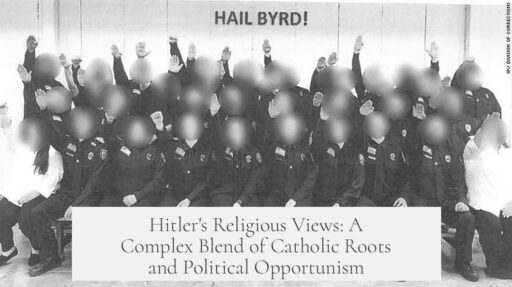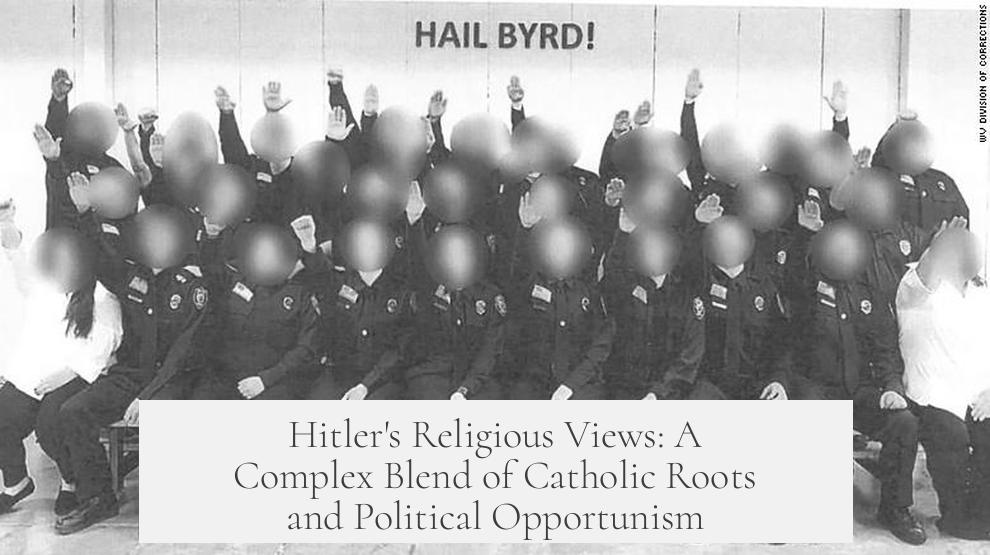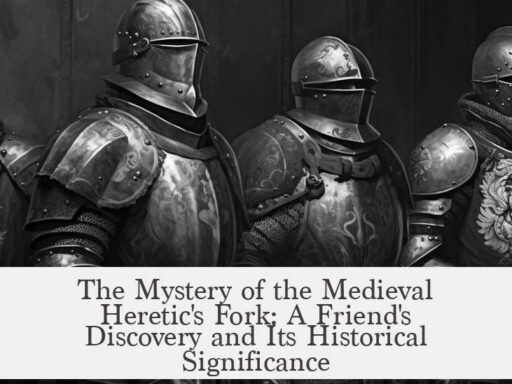Adolf Hitler’s religious views are complex and often contradictory, shaped by political expediency and personal pragmatism rather than firm faith. Raised in a Catholic setting, he distanced himself from formal religion as an adult but frequently referenced religious concepts, including a creator or Providence, usually to support his political narrative.
Hitler’s early years saw him baptized as a Catholic, influenced mainly by his devout mother, even though his father held a more skeptical Catholic stance. However, he abandoned personal religious practices after leaving home. Despite this, Christianity remained a significant cultural force in Germany, and Hitler exploited this to appeal to the masses.
The Nazi Party initially presented itself as aligned with Christianity to distinguish itself from socialist parties promoting atheism. Early propaganda identified the party as “Christian,” not necessarily from genuine belief but as a tactic to gain popular support.
Hitler’s own statements about religion reveal ambivalence. In his book Mein Kampf, he mentions a creator or almighty god, which some interpret as superficial faith or a rhetorical device to connect with religious Germans. During World War II, his statements varied dramatically—from claiming heavenly angels protected his troops to asserting his power exceeded that of Jesus. Such fluctuations suggest political motives rather than doctrinal conviction.
Hitler criticized Christian values sharply. He rejected ideals like generosity and pacifism, viewing them as weakening European strength and progress. He also resented the Church’s influence, especially when it clashed with Nazi policies or challenged his authority.
Though he sometimes used “Providence” rhetoric, it served more to motivate and unify than to express personal belief. Importantly, he rarely invoked religion to justify his actions explicitly. Notably, Hitler and other Nazis expressed anti-Christian sentiments. Joseph Goebbels’s diaries and speeches reveal Hitler’s harsh criticism of Christianity, labeling it a “blight” and associating it with Jewish influence, thus reflecting ideological hostility rather than spiritual opposition alone.
Some Nazi leaders embraced occultism or pagan-like rites, particularly within the SS, but there is no strong evidence that Hitler personally engaged in these practices. His religious stance remained focused on political convenience rather than genuine adherence.
Politically, Hitler’s religious views matched his needs. He promoted the idea of “Positive Christianity,” a Nazi-tailored version stripping away traditional Christian doctrines that conflicted with Nazi ideology. Simultaneously, he claimed respect for the “simple faith of the people,” positioning religion as a social tool rather than a personal commitment.
Interestingly, Hitler favored Islam’s martial qualities over Christianity’s pacifism. He admired Islam for its perceived effectiveness in conquest and contrasted it with what he called the “cowardice” of Christians. However, he doubted the survival of Arab Muslims in Europe’s climate, considering “Aryan” or German Muslims more fit for his racial ideals.
| Aspect | Details |
|---|---|
| Early life | Baptized Catholic; abandoned practice; influenced by mother’s devoutness. |
| Nazi Party stance | Initially claimed Christianity for political appeal; later occultism arose in some Nazi circles. |
| Hitler’s public statements | References to god/creator; erratic beliefs during war; used religion politically. |
| Criticism of Christianity | Rejected Christian values; viewed Christianity as Jewish invention and hindrance to progress. |
| Political use | Encouraged Positive Christianity; religion was a tool for social control. |
| Views on Islam | Admired Islam’s warrior aspect; preferred ‘Aryan’ Muslims hypothetically. |
Hitler’s religious views refuse a simple label. While raised Catholic, he concealed personal faith behind opportunistic rhetoric, rejecting core Christian ethics and attacking institutional Christianity’s power. His use of religious language mostly aimed to manipulate public opinion and strengthen Nazi ideology. Ultimately, Hitler’s stance combined pragmatic cynicism with selective appropriation of religion aspects to serve his political agenda.
- Raised Catholic but abandoned religious practice early.
- Used Christianity as a political tool, not personal faith.
- Criticized Christian values and institutions as harmful to progress.
- Referenced god and Providence inconsistently, often for rhetoric.
- Supported “Positive Christianity” aligning with Nazi goals.
- Favored Islam’s conquering spirit over Christian pacifism.
- Religious views shifted to suit political expediency and control.
What Were the Religious Views of Adolf Hitler, If Any?
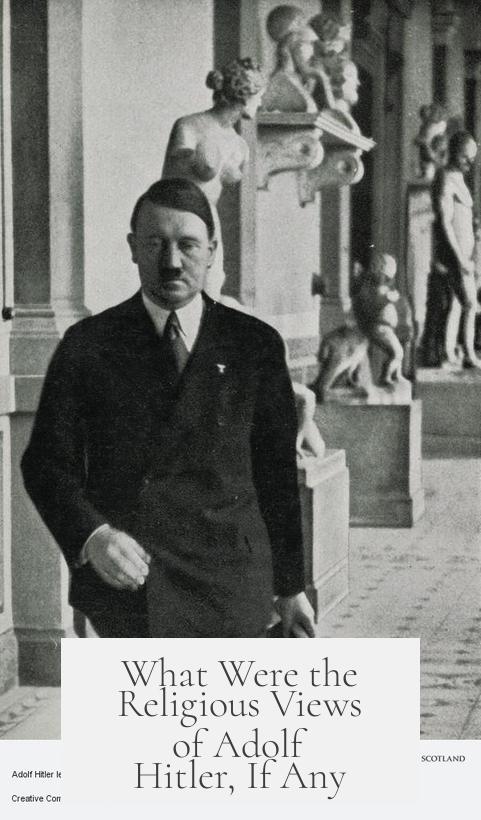
Adolf Hitler’s religious views were a tangled web of early Catholic influence, political expediency, skepticism, and outright hostility toward traditional Christianity. While he was baptized and raised in a Catholic setting, his later life reveals a mix of pragmatic use of religion and personal disdain for Christian values.
So, was Hitler a man of faith? Well, yes and no. His “faith” shifted depending on what suited his ambitions best. Let’s dig into this complex question and unfold his religious journey.
From Catholic Roots to Religious Disillusionment
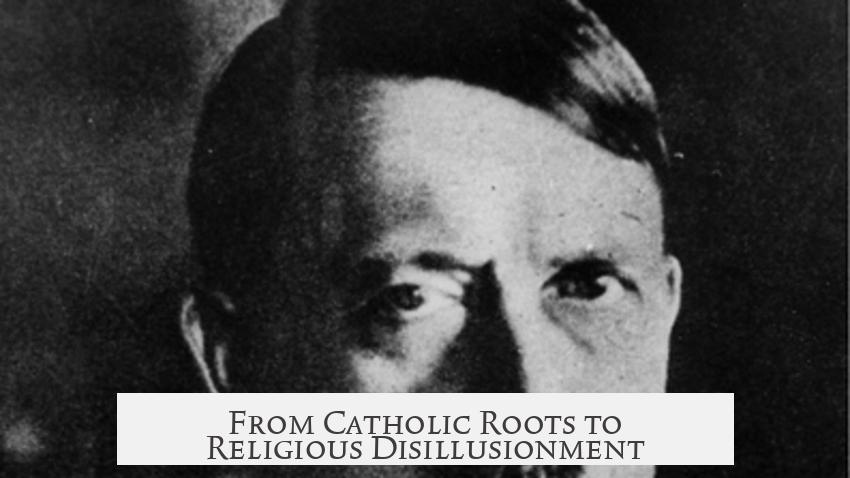
Hitler’s earliest exposure to religion was through his family. His father was a skeptical Catholic, leaning more toward doubt than devout practice. On the other hand, his mother clung tightly to her Catholic faith, which influenced young Hitler enough for him to be baptized.
Despite this religious start, he drifted away from church around adulthood. Once out of the family fold, Hitler stopped religious practice. He apparently grew critical, even disdainful, of organized religion—viewing it as either irrelevant or, worse, a hindrance to his ideological aims.
Christianity and the Nazi Party: A Marriage of Convenience?
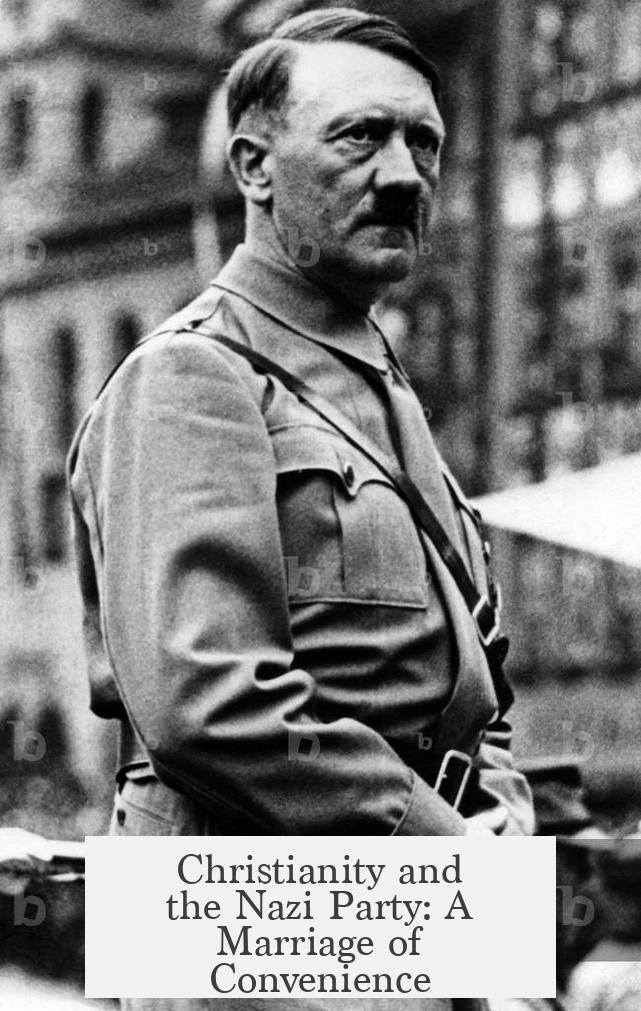
In the 1920s, the Nazi Party cleverly marketed itself to Christian Germans. It labeled itself as a Christian organization to appeal to the masses and distance itself from secular socialist rivals. Hitler himself, in this phase, paid lip service to Christianity and even claimed his party supported Christian principles.
But this was largely strategic posturing. Other Nazis, especially in the SS, dabbled in occultism, pagan rites, and cult-like ceremonies. Hitler, however, seems to have stayed clear from these exotic spiritual escapades. He mostly used religion as a tool to rally public support rather than as a genuine creed.
Hitler’s Ambiguous Statements and Personal Beliefs
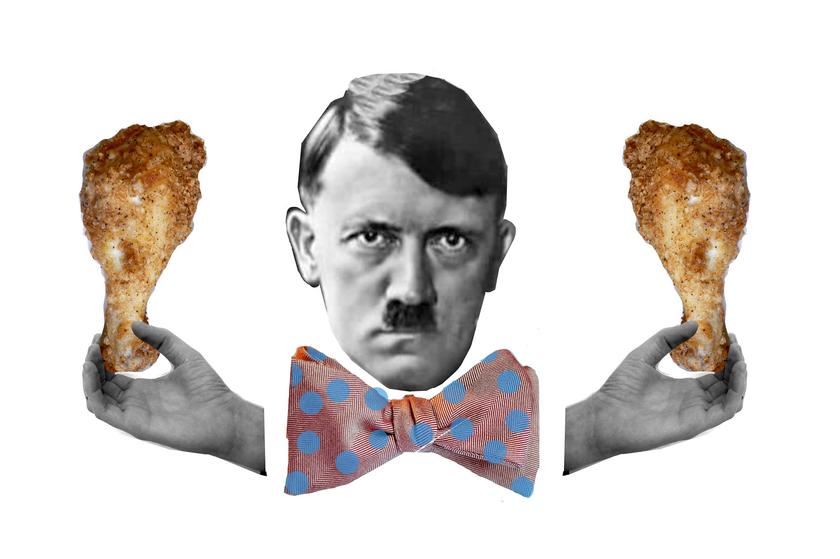
In his notorious book, Mein Kampf, Hitler mentions a “creator” or “almighty god” early on—a nod that some interpret as belief in a higher power. But it’s just as plausible that he wrote this to resonate with religious readers and win favor.
During World War II, his statements about religion became inconsistent. At times, he claimed divine or angelic protection for his troops. Other times, he expressed that he was mightier than Jesus, rejecting any divine authority.
His core views were far from Christian. He loathed Christian values such as compassion, generosity, and pacifism—values that directly clashed with his ruthless ideology. He criticized Christianity harshly, calling it a “blight” and accusing it of halting Europe’s progress and scientific advancement. Additionally, he resented the Church’s power because it often resisted his oppressive policies.
Using Divine Providence Without Making God the Boss
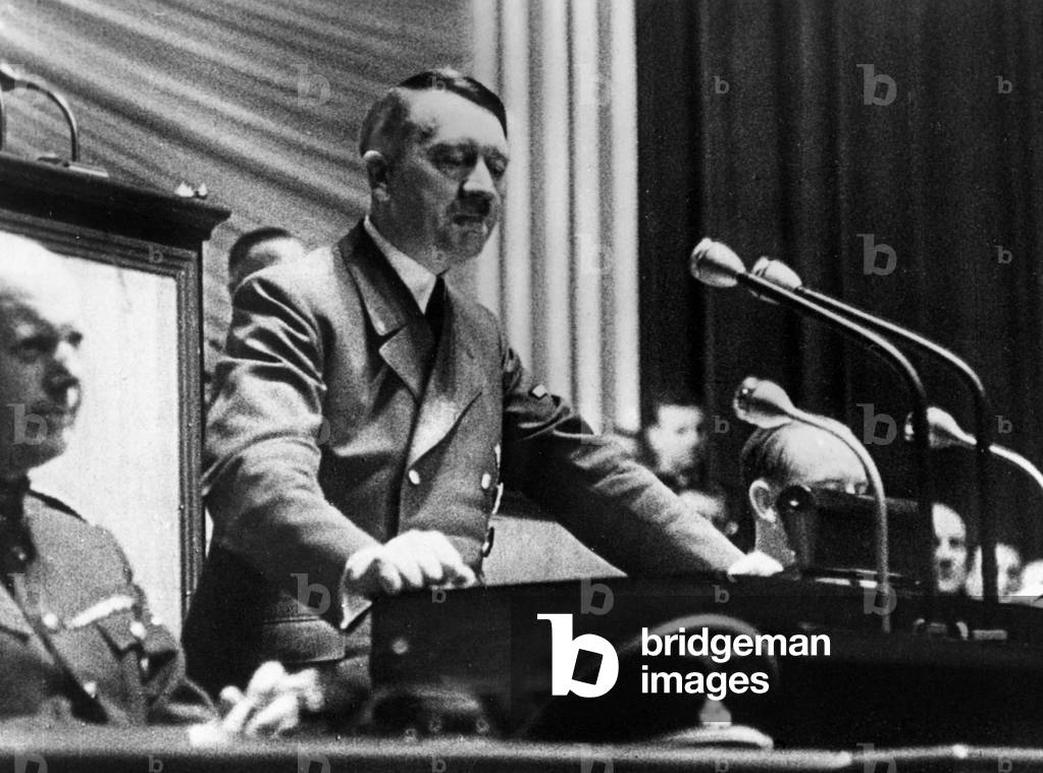
Hitler sporadically invoked Providence, suggesting a guiding hand behind his conquests. Yet, these references were inconsistent and rarely formed the basis of his policies. Unlike traditional religious leaders, Hitler never framed his political agenda as a divine mission. It was mainly pragmatic.
Why the contradiction? Because Hitler’s use of religion was tailored to reaching and manipulating audiences rather than expressing sincere belief.
The Political Game: Religious Views as a Means, Not an End

Essentially, Hitler’s religious stance was as flexible as a gymnast. He embraced “Positive Christianity,” a Nazi-curated version of Christianity stripped of its pacifist and Jewish roots, to appease the common folk.
He stated the need to “respect the simple faith of the people,” which allowed him to co-opt religion for propaganda while sidelining inconvenient doctrines. His views changed based on political expediency – if embracing Christian rhetoric helped, he’d do it; if attacking church power helped, he’d declare war on it.
What About Islam? Surprisingly, Hitler Had Opinions
Here’s a less-known fact: Hitler admired Islam’s martial spirit. He praised the religion’s “conquering through the sword” methods, contrasting it with what he considered the “cowardly” nature of Christianity. This admiration was tactical rather than spiritual.
Interestingly, Hitler theorized that Arabs, if dominant in Europe, would not survive due to their “inferior breeding.” However, he believed Aryan or German Muslims would be a formidable force—an odd mix of racial ideology and religious preference!
So, What’s the Takeaway?
Hitler’s religious views were inconsistent and opportunistic. Raised Catholic, he rejected genuine Christianity but maintained a functional use of its vocabulary to manipulate masses and build nationalist fervor. Despite occasional references to a creator, his ideology conflicted sharply with Christian morality.
He wielded religion like a double-edged sword—putting it forward when useful and cutting it down when inconvenient. His personal beliefs remain murky, complicated by mental degradation in his later years and a clear drive to meld religion into his political arsenal.
One final thought: How might European history have shifted if Hitler had genuinely embraced or rejected religion outright? His ambiguous stance reveals how religion can be weaponized—not simply a personal belief, but a strategic tool in the hands of power-hungry leaders.
Understanding Hitler’s religious views isn’t just about the man; it’s about how faith can be distorted to serve dark ambitions. That’s a lesson worth pondering today.
1. Did Adolf Hitler consider himself a Christian?
Hitler was baptized Catholic but later abandoned religious practice. He expressed belief in a creator in Mein Kampf but rejected core Christian values. His relationship with Christianity was complex and often contradictory.
2. How did Hitler view the Christian Church?
He distrusted the Church’s power and criticized its influence. Hitler saw Christian values like pacifism as harmful to his goals. He believed Christianity held back European progress and scientific development.
3. Was Hitler’s religion sincere or politically motivated?
Hitler’s religious statements mostly served political purposes. Early Nazi Party appeals to Christianity aimed to gain popular support. His views often shifted depending on what suited his agenda.
4. Did Hitler support other religions besides Christianity?
He admired Islam’s militant nature and contrasted it with what he saw as Christian weakness. He envisioned an “Aryan” version of Islam aligned with Nazi ideals but did not adopt Islam himself.
5. Was Hitler involved in occultism or paganism like some Nazis?
Some Nazis embraced occult and pagan rituals, but no evidence shows Hitler personally followed them. He occasionally used religious language but never adopted occult beliefs.
